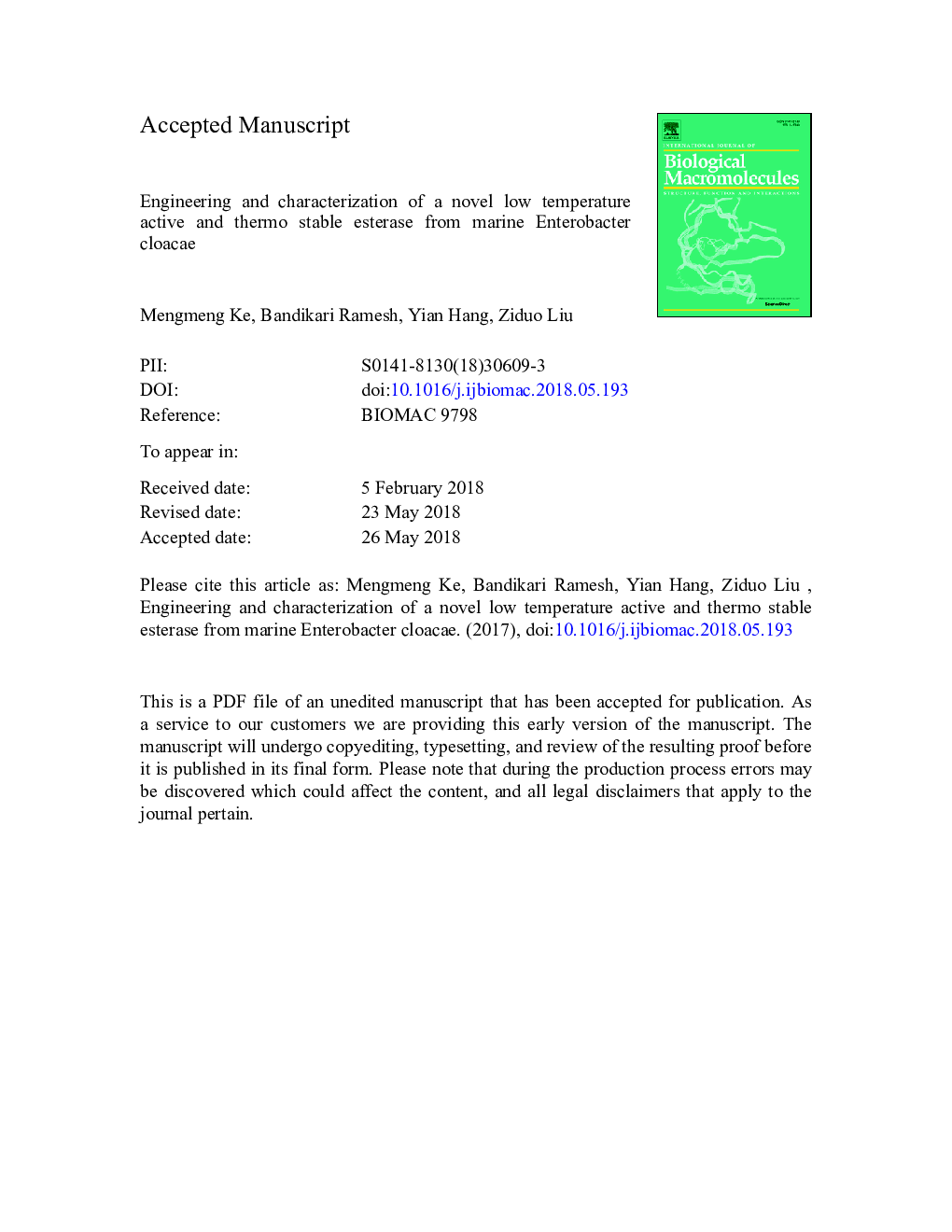| Article ID | Journal | Published Year | Pages | File Type |
|---|---|---|---|---|
| 8326780 | International Journal of Biological Macromolecules | 2018 | 24 Pages |
Abstract
Esterases are one of the most important industrial enzymes. Here, a novel estA was cloned from Enterobacter sp. and characterized. The sequence alignment results showed that it was a novel esterase. The purified EstA had a molecular weight of 26 KDa with an optimum temperature and pH of 40â¯Â°C and 9.0. EstA retained >70% activity between 0â¯Â°C and 20â¯Â°C, indicating it was a low temperature active enzyme. EstA exhibited low activity after incubation at 45â¯Â°C for 120â¯min or 50â¯Â°C for 30â¯min. In the presence of organic solvents, detergents and different concentrations of NaCl, EstA retained high activity. In order to improve thermal stability, a mutant A92D with better thermal stability than EstA was obtained by random mutation. ESTA92D showed high activity at 45â¯Â°C for 120â¯min and maintained 85% of the original activity at 50â¯Â°C for 30â¯min, approximately a 3.4-fold increase over EstA. Homology modeling analysis showed that the improved thermostability of ESTA92D was attributed to hydrophilic Asp rather than hydrophobic Ala, leading to an increase of the interaction and solubility as well as the surrounding area. The improved thermostability of low-temperature-active EstA suggests its immense applications in industrial applications.
Related Topics
Life Sciences
Biochemistry, Genetics and Molecular Biology
Biochemistry
Authors
Mengmeng Ke, Bandikari Ramesh, Yian Hang, Ziduo Liu,
